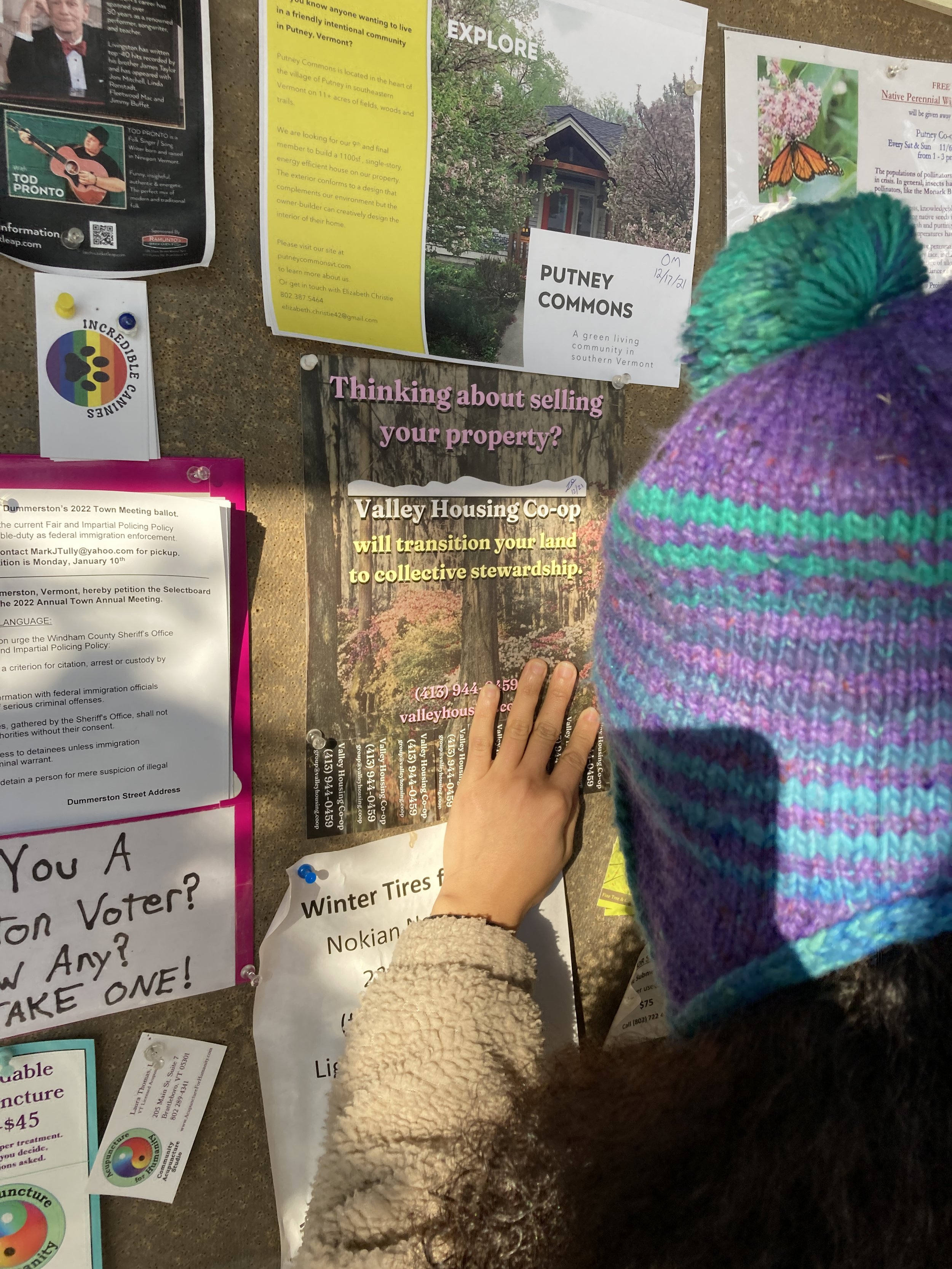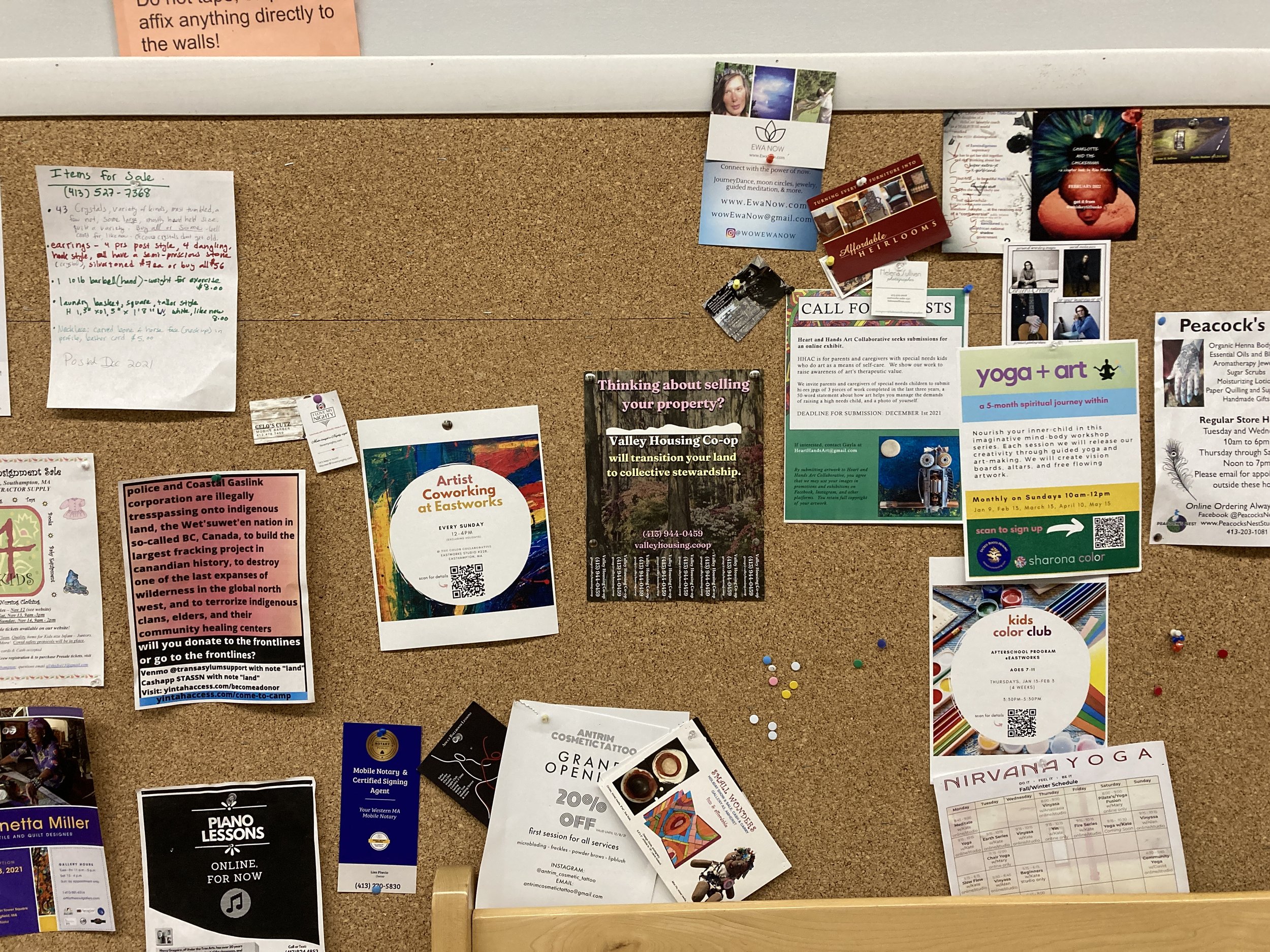Post-party post!
A huge thank you to everyone who came out and helped us celebrate this big win last week! So many people from so many aspects of this journey coming together, lots of energy around the project, so good to be together!
Thank you to all those who spoke, from projects as established as the Valley Community Land Trust, one of the oldest land trusts in the country who holds the land VHC is on, to our newest land preserving entity the Valley Alliance for Land Equity, and more in between. Those speeches were recorded and are available below! In the time since we gathered, we’ve been enjoying reading articles by the Greenfield Reporter and Montague Recorder covering the event.
A huge thank you to everyone who came out and helped us celebrate this big win last week! So many people from so many aspects of this journey coming together, lots of energy around the project, so good to be together!
Thank you to all those who spoke, from projects as established as the Valley Community Land Trust, one of the oldest land trusts in the country who holds the land VHC is on, to our newest land preserving entity the Valley Alliance for Land Equity, and more in between. Those speeches were recorded and are available below! In the time since we gathered, we’ve been enjoying reading articles by the Greenfield Reporter and Montague Recorder covering the event.
Crowd listens as our wonderful caterers Tortilleria Semilla speak about their cooperative
My favorite parts of the day were people approaching us with interest in living on site and interest in becoming members of our governance circles. We are a small co-op operating in a sociocratic non-hierarchical governance model. If you were excited by any aspects of our work, be it membership, housing, land stewardship, financing, or mission, please consider being a member and joining a circle. Most circles meet max once per month and are a great way to contribute to the development of this project! Consider becoming a monthly dues paying community member to support our work and join any circle meeting!
Thanks again for a wonderful day. Despite the drizzles and gray, it was so brightening to be together!
With love,
Nina, on behalf of the Valley Housing Co-op membership circle
–
P.S. Check out our shared photo album and add any photos you took!
P.P.S. If you were enjoying the music, check out the land trust party playlist – thank you Meem & Matti for crafting it!
Resources now that the co-op is real!
We now own property! Well technically, we co-own duplexes and lease land from Valley Community Land Trust.
There is a lot to share, but we wanted to start with resources for combining a group equity housing cooperative with a community land trust, in order to create stable resident-controlled housing, with land taken off the speculative market forever and stewarded by the community.
Stone Farm Lane Property
32 acres in Greenfield with two duplexes & development potential near the Connecticut River
We now own property! Well technically, we co-own duplexes and lease land from Valley Community Land Trust.
There is a lot to share, but we wanted to start with resources for combining a group equity housing cooperative with a community land trust, in order to create stable resident-controlled housing, with land taken off the speculative market forever and stewarded by the community.
Our articles of incorporation, which we submitted to the state to form our entity.
Our bylaws, which set us up as a group equity cooperative with resident and community membership, governed by sociocracy. Here are some bylaws we used as inspiration as well. If you are looking for help filing in MA as a cooperative, we worked with attorney Kyle Sosebee to help us put these together and would recommend him. We also got help from Jerry Koch-Gonzalez at Sociocracy For All around the governance pieces.
Our ground lease, which limits the resale value of our homes and adds oversight from Valley Community Land Trust for development and land stewardship. It was drafted by Valley Community Land Trust based on the Grounded Solutions model ground lease. Jim Oldham from Equity Trust helped us modify ours as well and they offer consultation for CLT leases if you need technical assistance.
Our financial projections as of closing.
Please feel free to take anything that you wish from these. Also, feel free to reach out at general@forum.valleyhousing.coop, or sign up for $5 / month to be a community member-owner for access to our forum and the ability to sit in on any meetings or join a circle.
We will have another post soon with more details about the process we went through, including all the community support we got to get us here…
Stay tuned for an invitation to celebrate on the property this fall. Thank you so much for your support <3
P.S. For anyone local Four Phantoms Brewery in Greenfield is donating $1 to Valley Community Land Trust for every "punk house" beer purchased. Try it while it lasts!
Winter Updates
Hello! I wanted to write up some of what has been going on the past month in Valley Housing Co-op land since Squarespace has this nice blog feature. We had a pretty busy holiday season, going to see the Vermod modular home factory, putting up some flyers, updating our website, looking into VT, and helping Nevin with his tiny home.
Hello! I wanted to write up some of what has been going on the past month in Valley Housing Co-op land since Squarespace has this nice blog feature. We had a pretty busy holiday season, going to see the Vermod modular home factory, putting up some flyers, updating our website, looking into VT, and helping Nevin with his tiny home. Feel free to comment with any thoughts or privately at group@valleyhousing.coop.
Vermod Factory Tour
“As Vermonters assessed statewide damage in the wake of Tropical Storm Irene, it became clear that mobile home residents were disproportionately affected by this extreme weather event. Although mobile homes make up only 7% of Vermont’s housing stock, they comprised 15% of the homes damaged during and after the storm. Responding to the need for affordable, resilient housing, the High Meadows Fund, VHCB, and Efficiency Vermont came together to form the Modular Housing lnnovation Project.”
We had a fun trip last month up into VT to checkout the Vermod modular home factory! It was fun to see the small homes being constructed in a big warehouse. They are net-zero ready, meaning that if roof mounted solar panels are ready those should be enough to power all their utilities for the year! They are so well insulated and airtight they need a special machine to cycle air in from the outside to prevent the CO2 from building up inside.
The Vermod homes sit in between manufactured homes (aka trailer homes) and traditional homes. They are zoned like regular homes, but they are built off site. They aren’t manufactured homes because they aren’t built to the national HUD standards, but instead have to be certified for each state they are moved to. Unlike manufactured homes, the owners usually own their own land and dwelling, so aren’t liable to the same sort of predatory financial situation that many who own a manufactured home fall into. However, they were built to serve as a replacement for folks who had mobile homes.
It was cool to see the homes, but maybe the most insightful part for me was talking to the person who was showing us around after about tiny home communities. She remarked that she had a number of people come in looking to build a small community of them over the years, but none had gotten off the ground. Surprisingly, she said it seemed like the biggest hurdle wasn’t even financing, but zoning!
We had decided on the way home that maybe the best thing to do for us would be to give up on “real” housing for now, it seemed just too expensive and too regulated. Instead, we talked about starting a little campground like community, wherever we could do it with minimal interference, likely VT, and starting with DIY structures instead of the type of the housing that Vermod provided, to lower the cost, permitting time, and the need to involve outside bank financing.
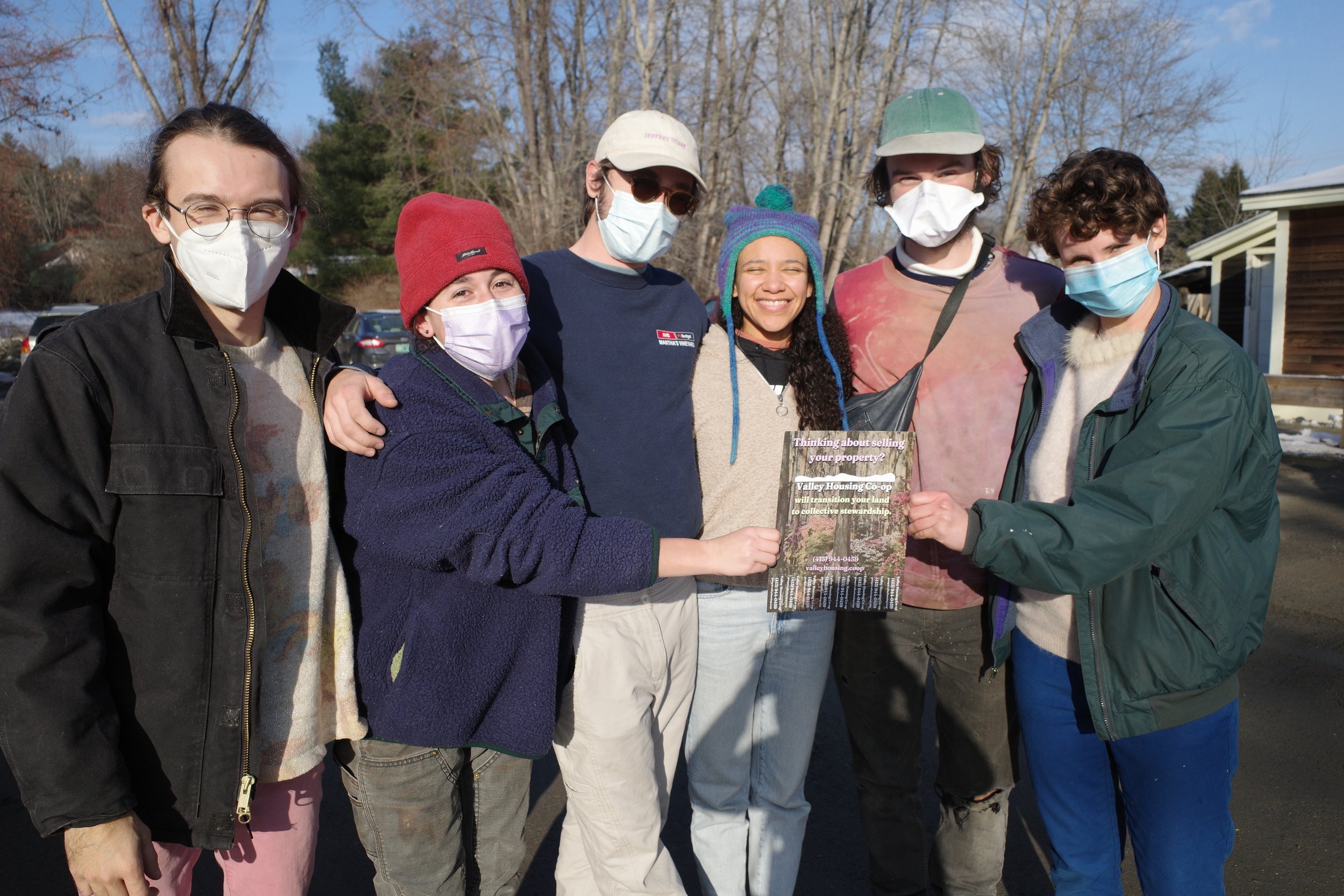
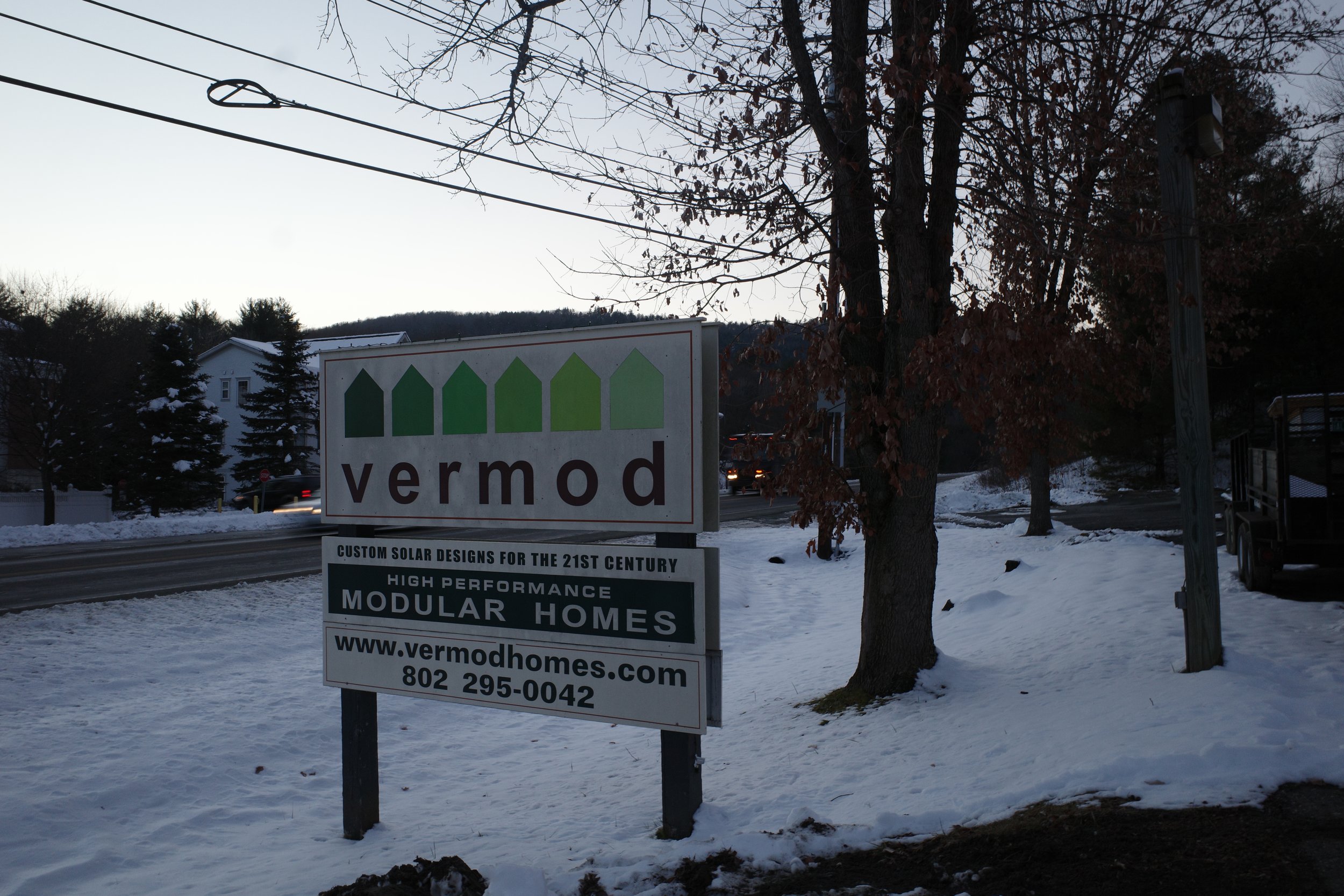
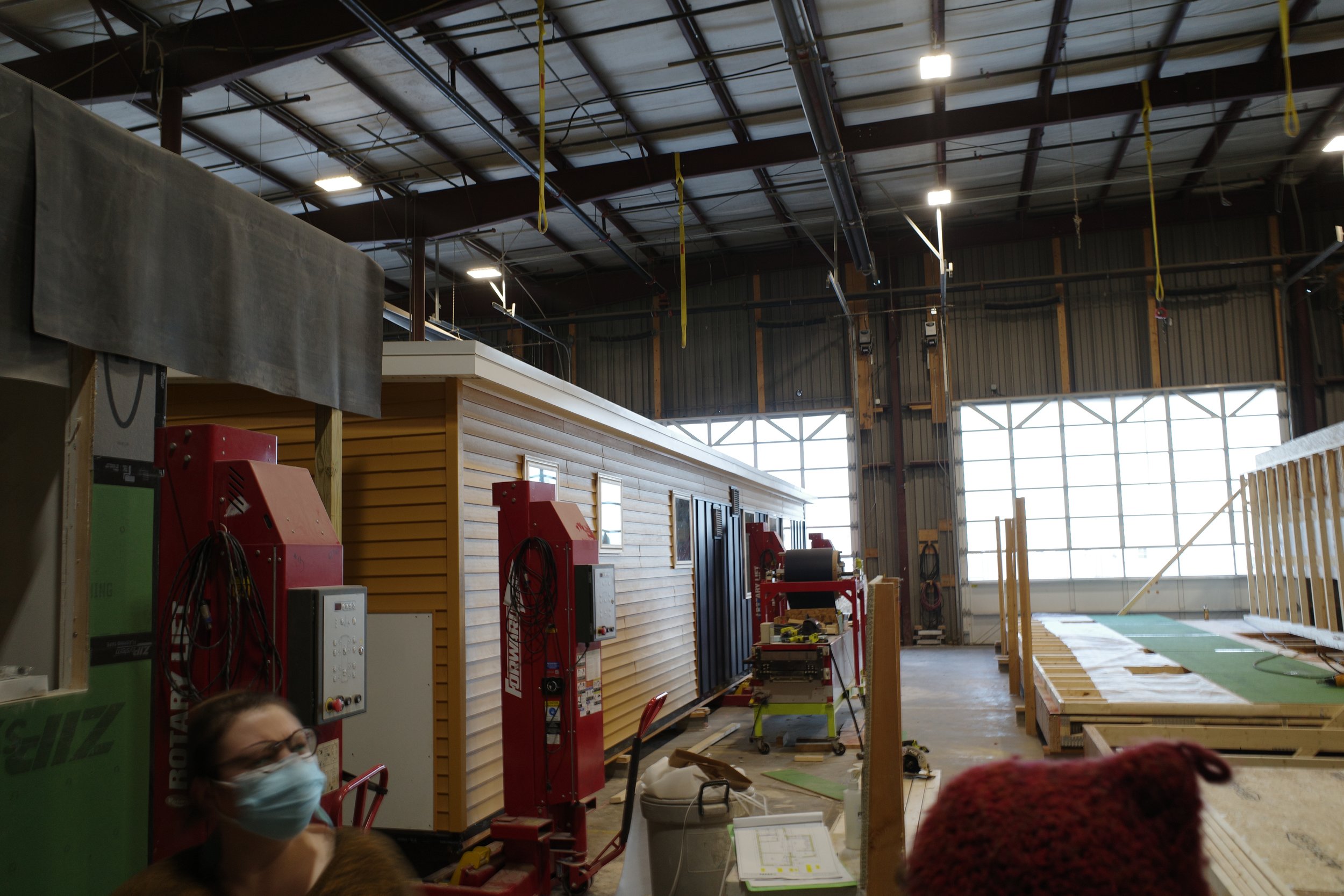
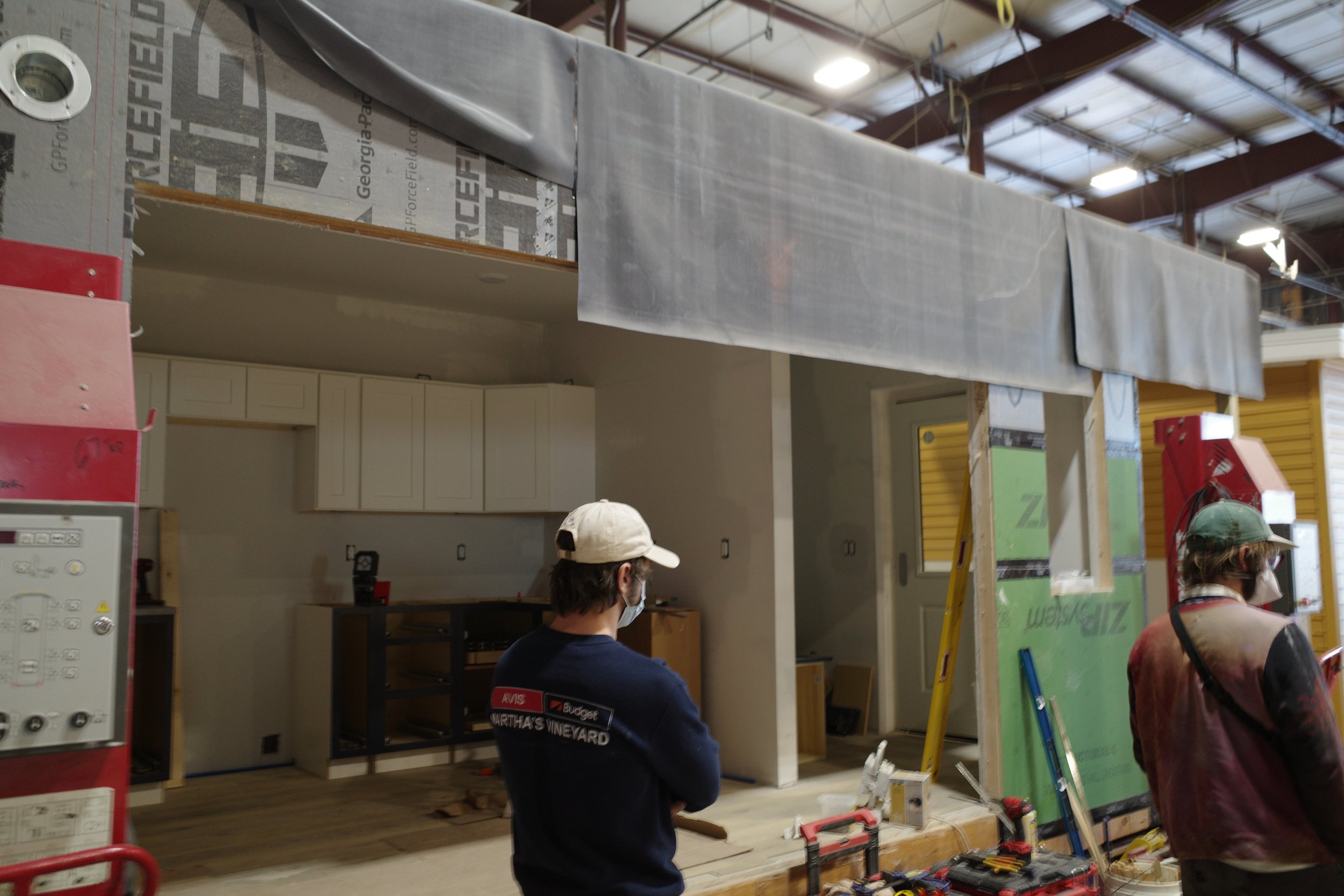
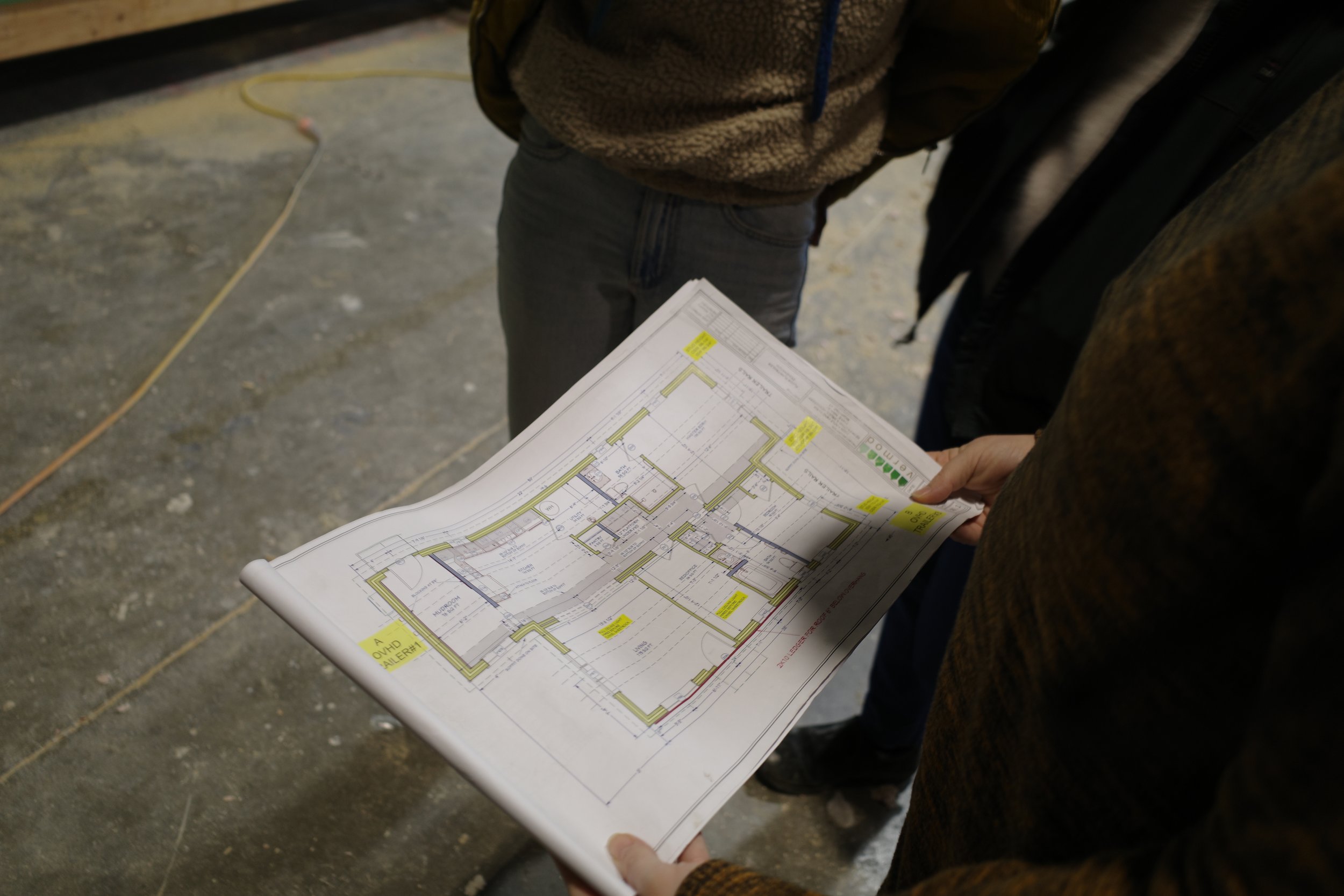
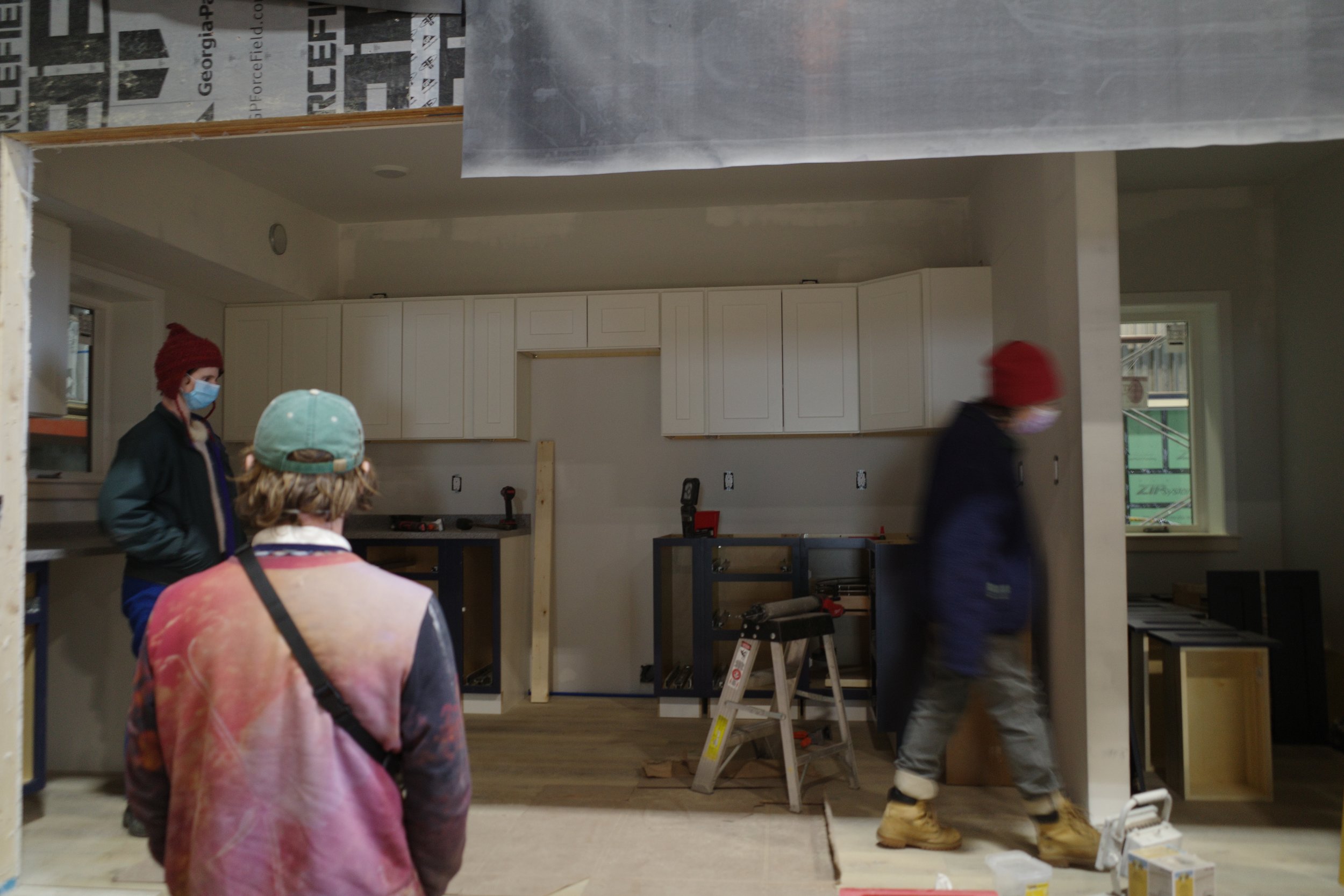
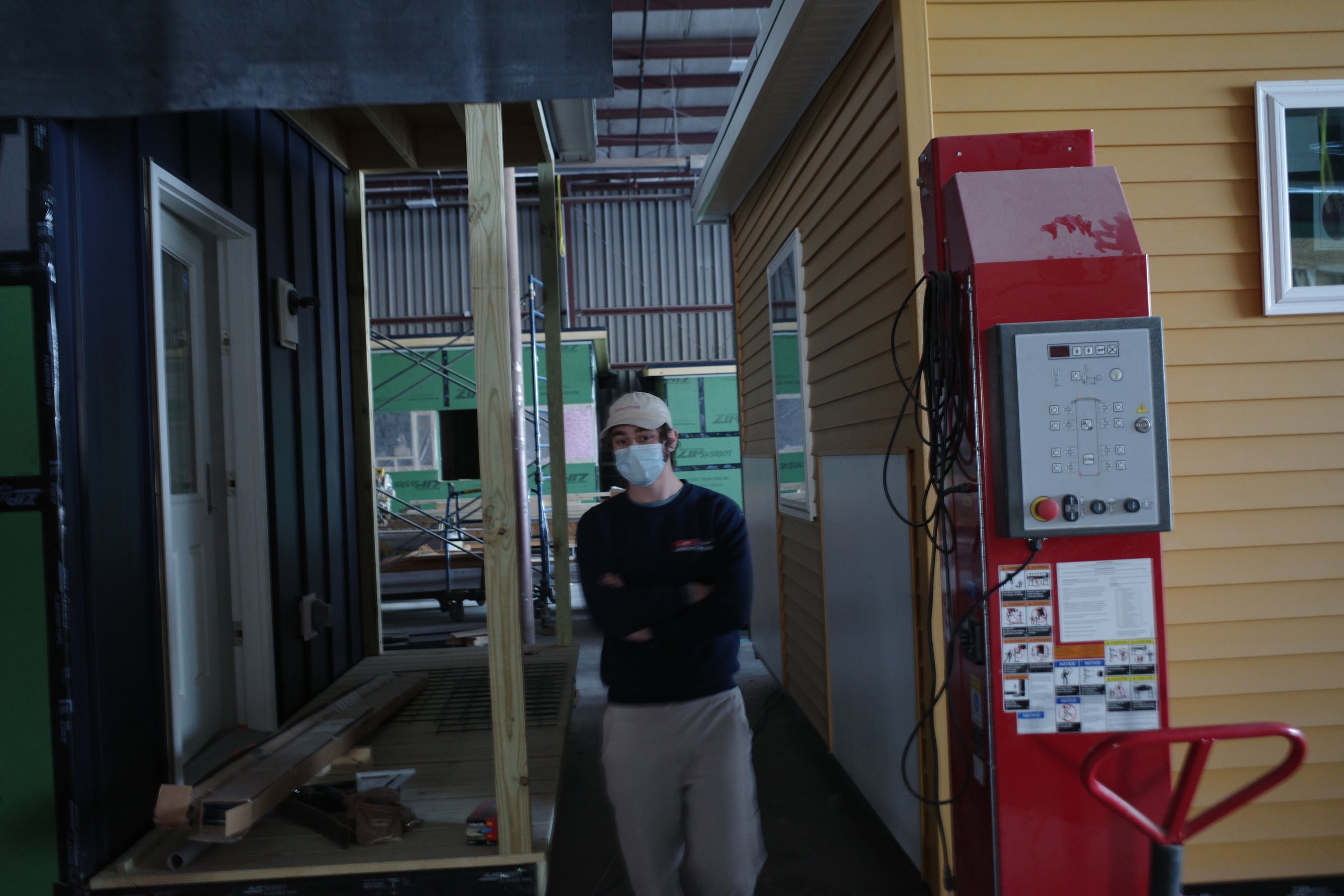
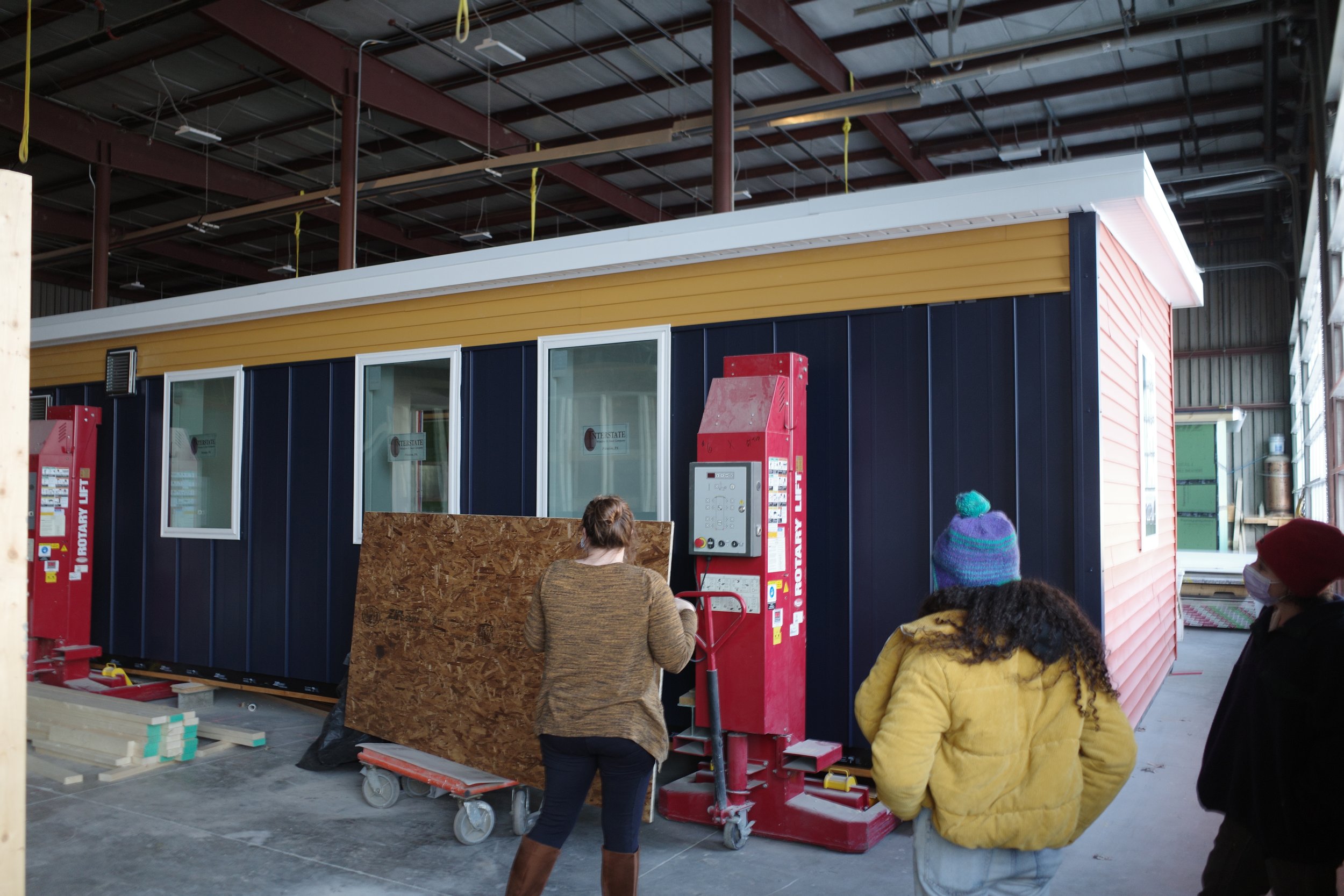
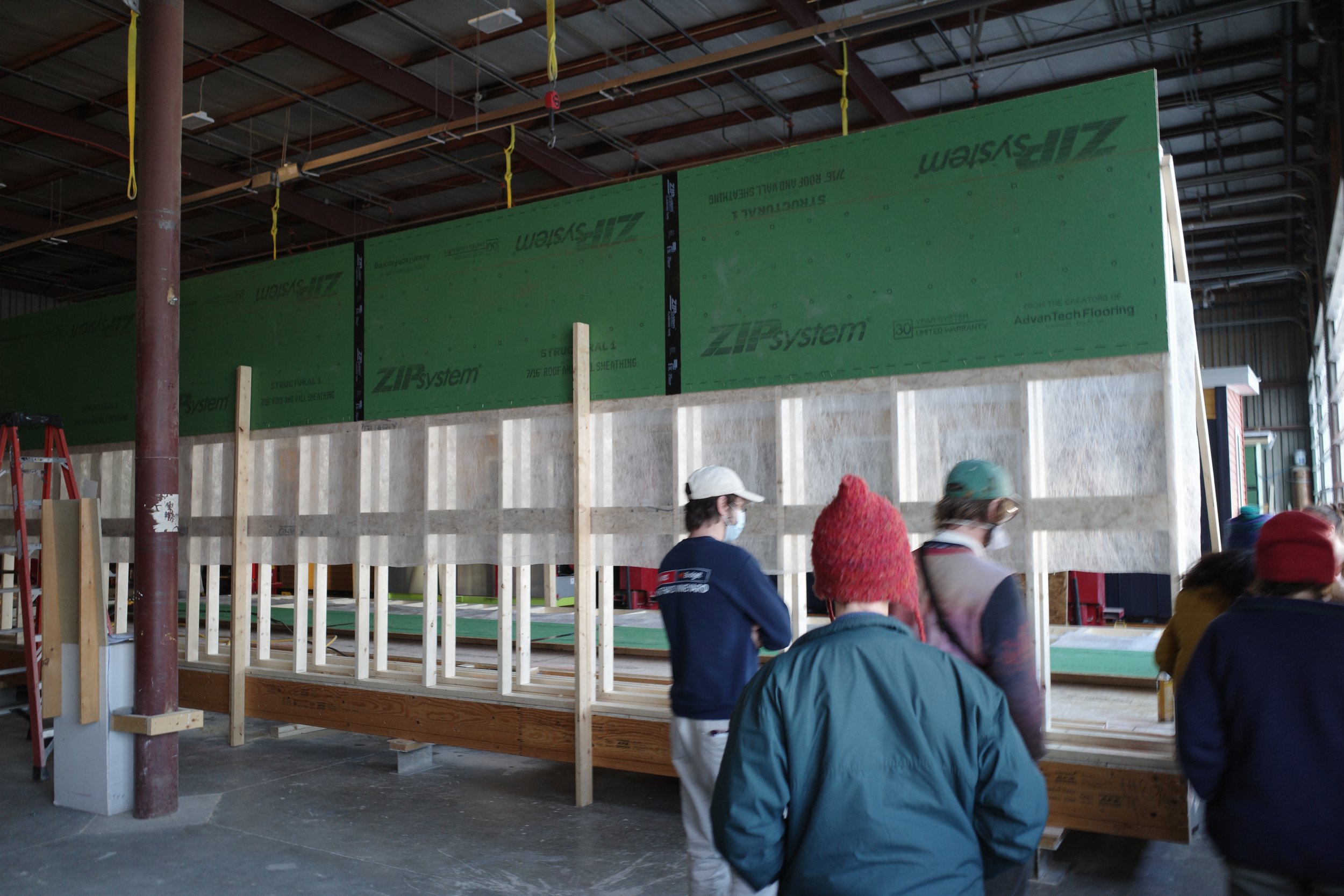
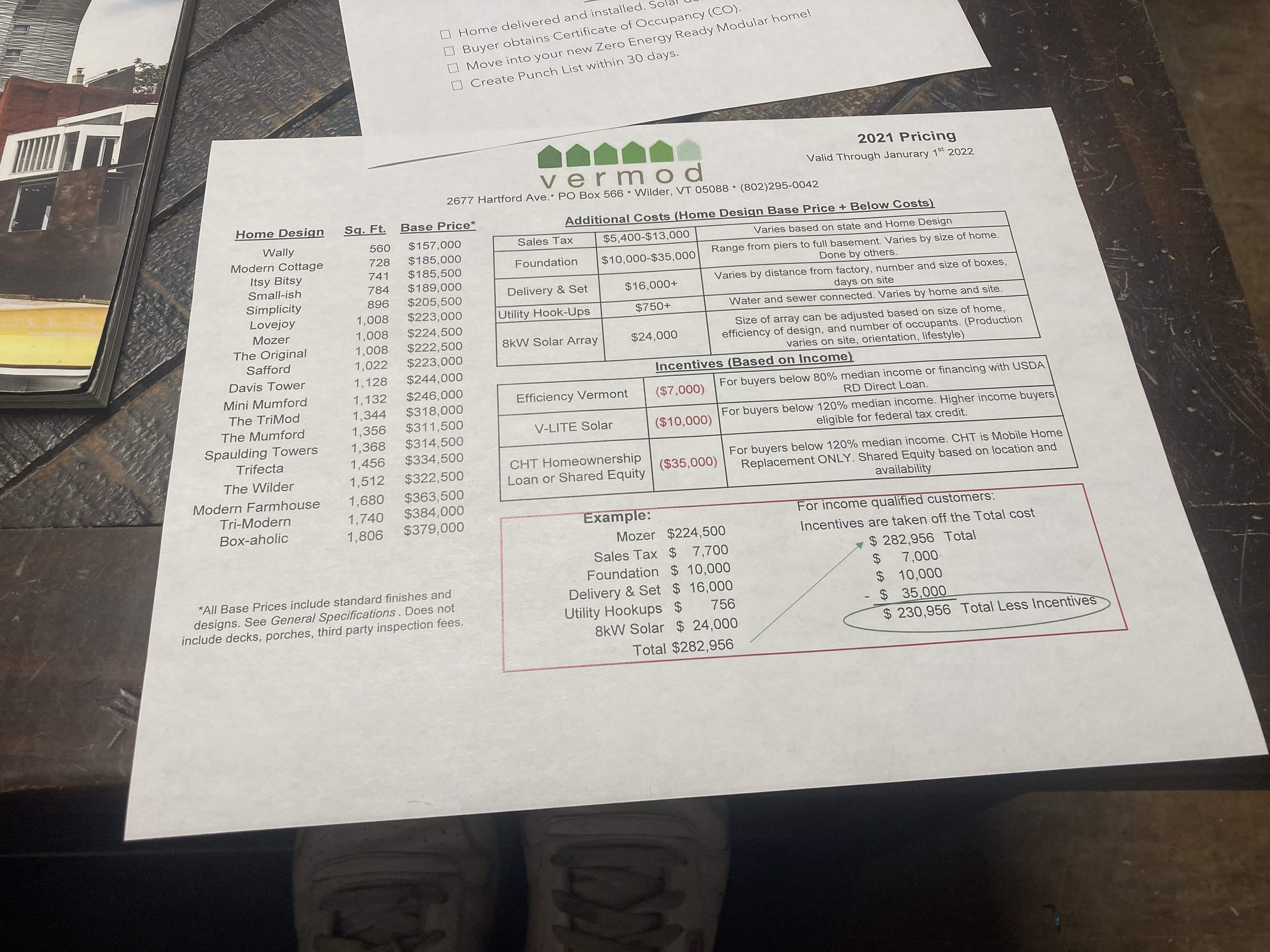
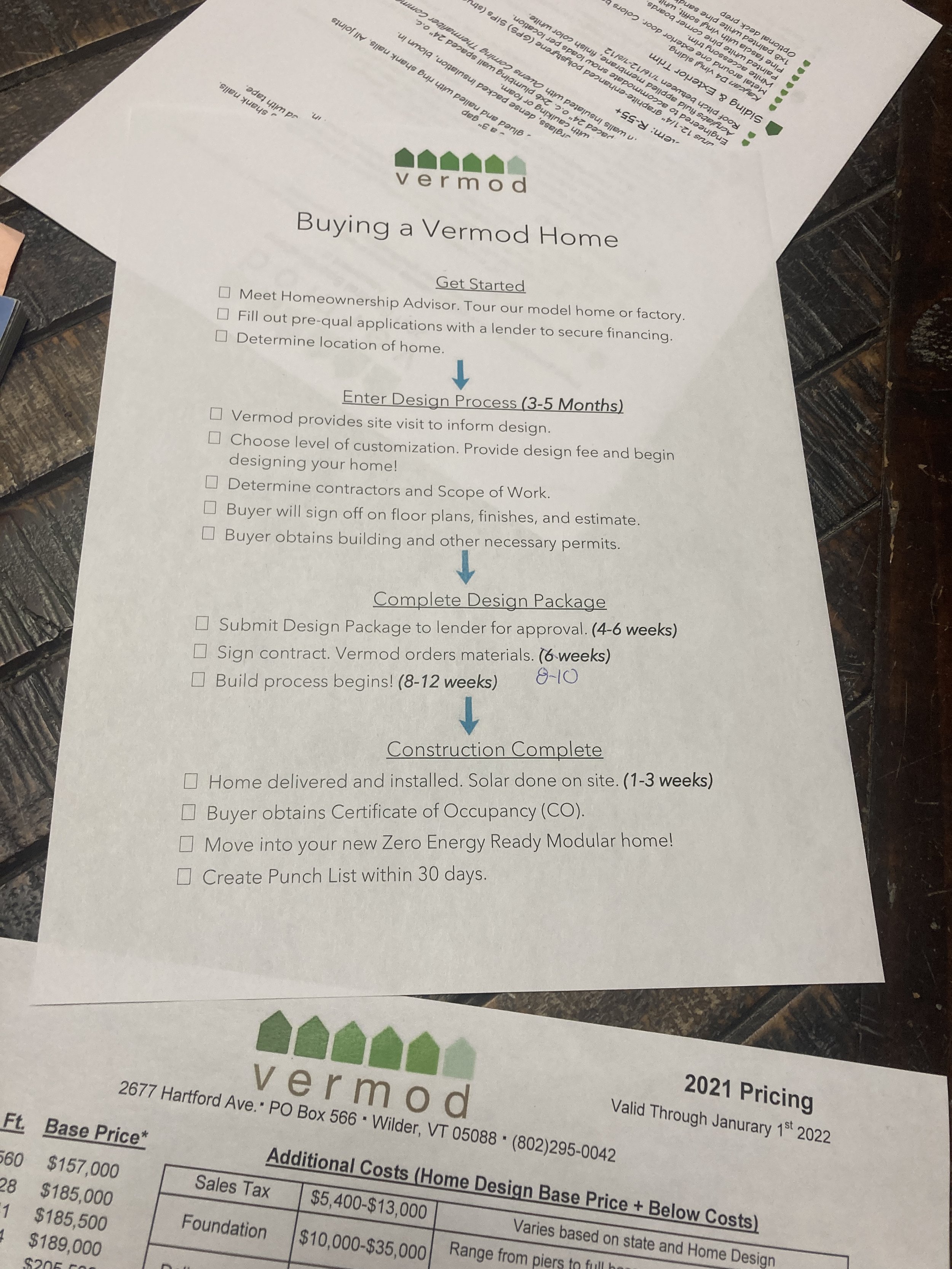
💻 Website and Flyering 📑
We had put together a flyer and printed some copies to hang around, to broaden our search for a property. We also updated our website, since it was linked on the flyer (compare website homepage before and after). We refreshed the homepage to bring the design closer to the poster, moved the values there, and updated the text of the values.
One of our members posted to a local message group and we received a number of responses (7!!) through our website. We currently don’t really have a public email list. We do have a google group, but it’s been mainly internal. We also aren’t sure exactly what onboarding would look like, since we don’t have a defined property yet.
This group has always been slightly bifurcated between twin missions of finding a place for ourselves where we can live and also building community around the shared idea of changing our relationship to land and property ownership. On one hand, it feels hard to know what any possible solutions for others when we can’t even solve the problem for ourselves! On the other hand, there is a ton of latent energy in this area around these themes and it would be great to have a way to share more resources and connect together.
One idea that came up could be to host a community housing/land forum in the area, and have a number of the groups doing interesting work present on what they are up to (off the top of my head, folks like Willow Permanent Real Estate Cooperative, New Culture Co-op, Lupinewood, the emerging Franklin County Community Housing Trust, and a number of other small communities). We could pair that with a way to stay connected online, like a mailing list and/or chat platform. Better yet, it could be a regular event, like a Meetup, to bridge between all the communities of folks who are working toward a new future here!
🌚 Nevin’s Tiny Cabin 🏡
Sketchup model of Nevin’s small cabin.
On Friday, Sara and I had a blast helping Nevin on a tiny cabin he is building for himself. It has just enough room for himself, his bed, and a little wood stove. It was inspiring to see how quickly it was coming together and he said he planned on spending only ~$4k on materials, with all the lumber salvaged. He is building it next to the completed yellow tiny home that is for sale! Each wall can be transported separately and then assembled on site.
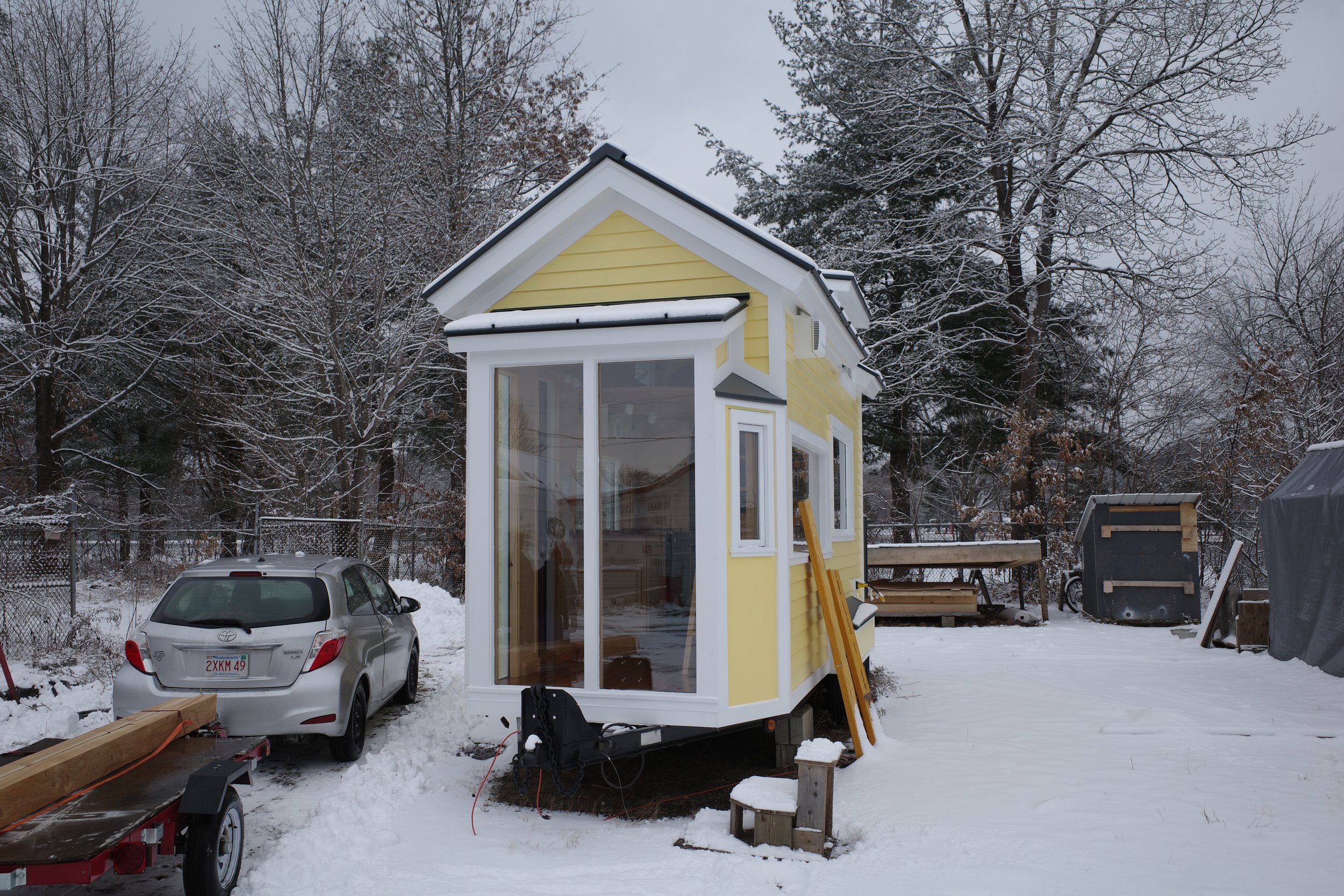
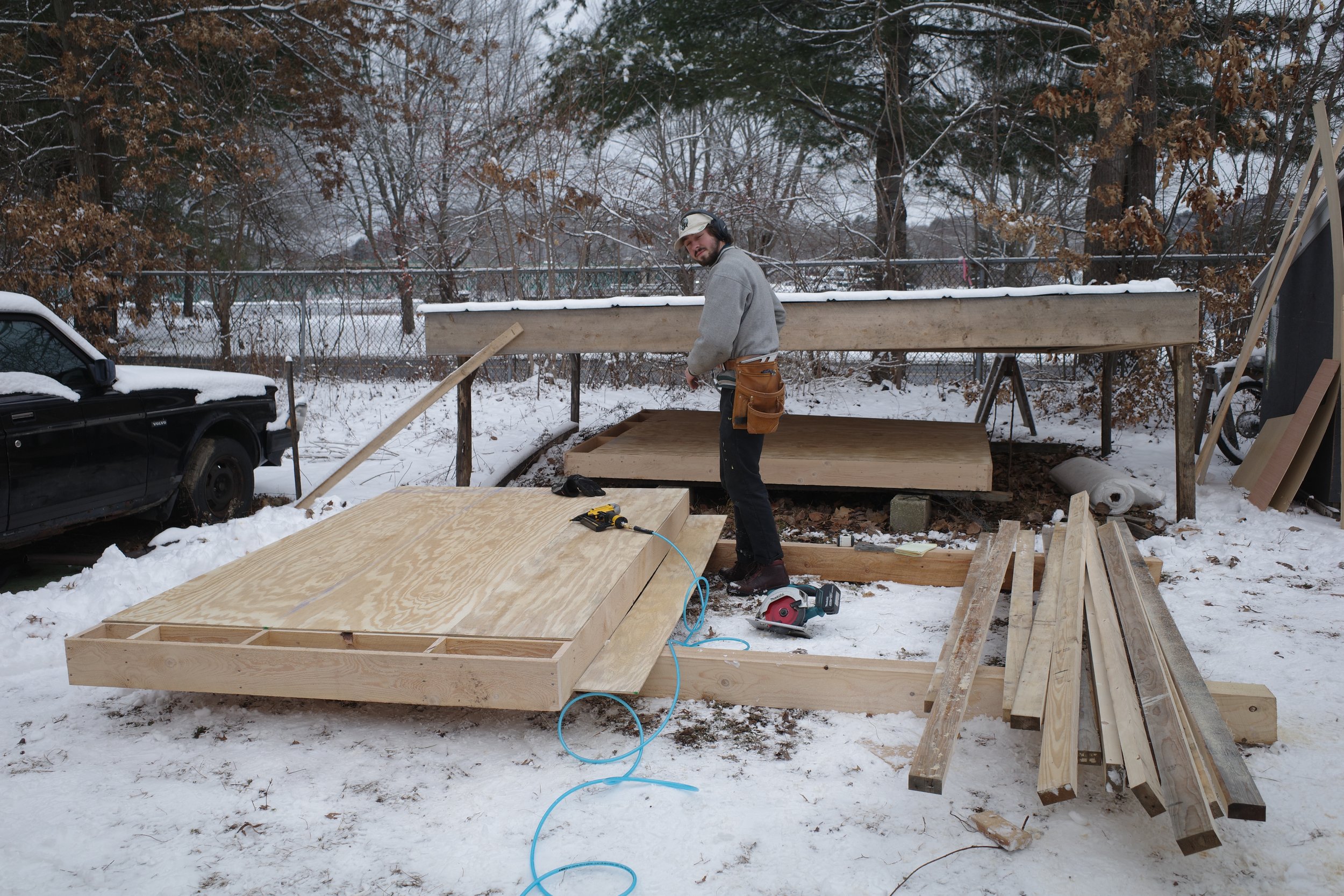
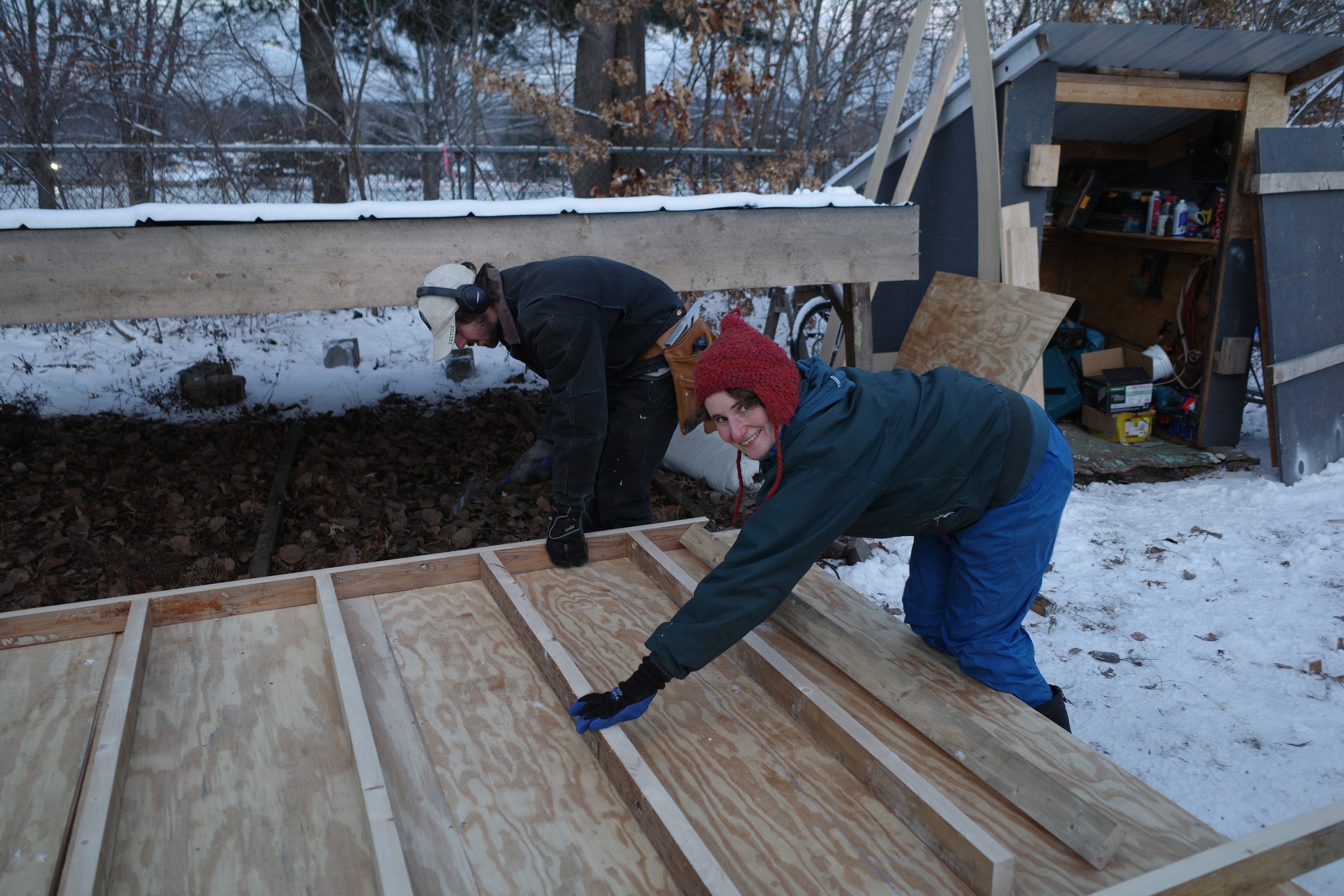
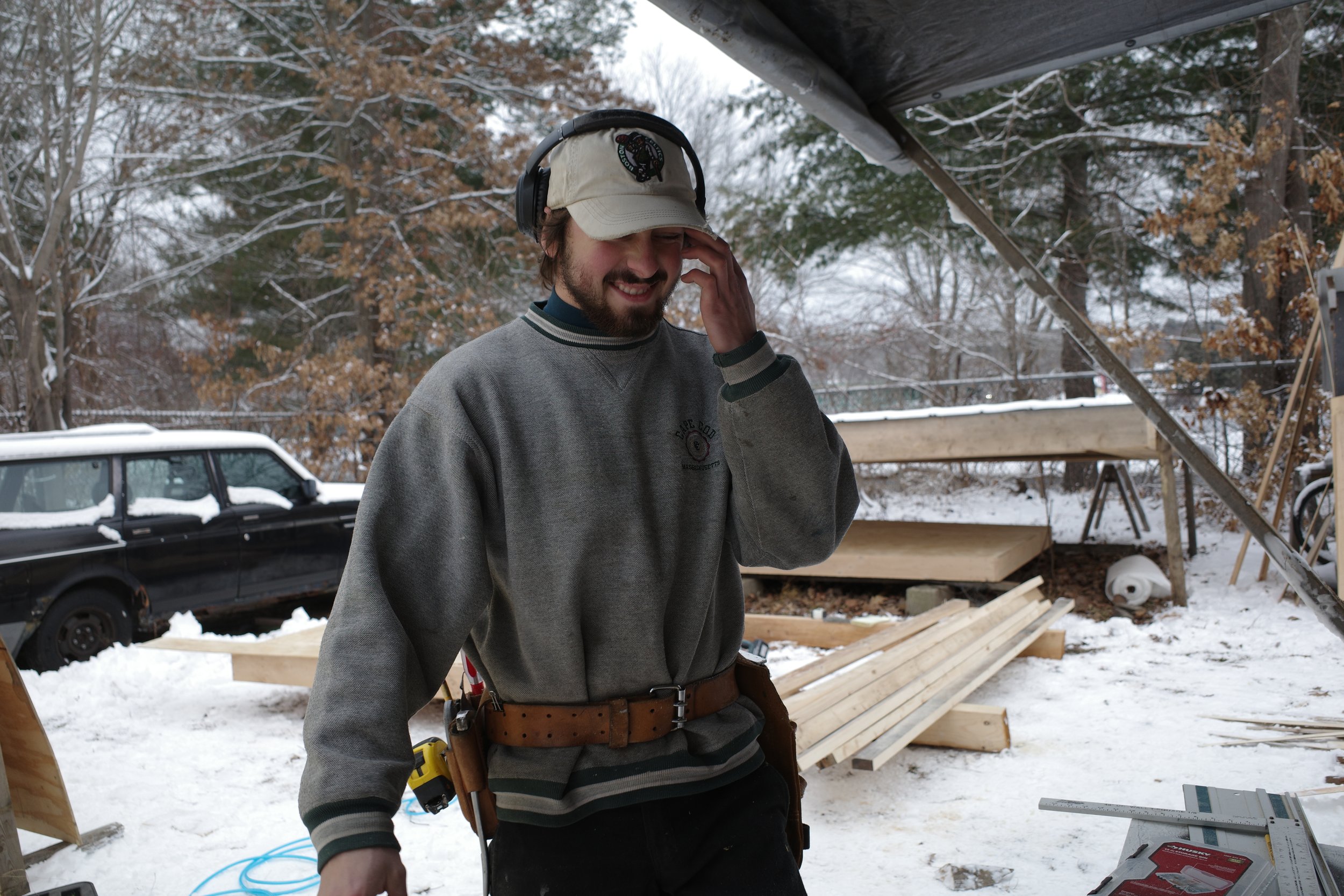
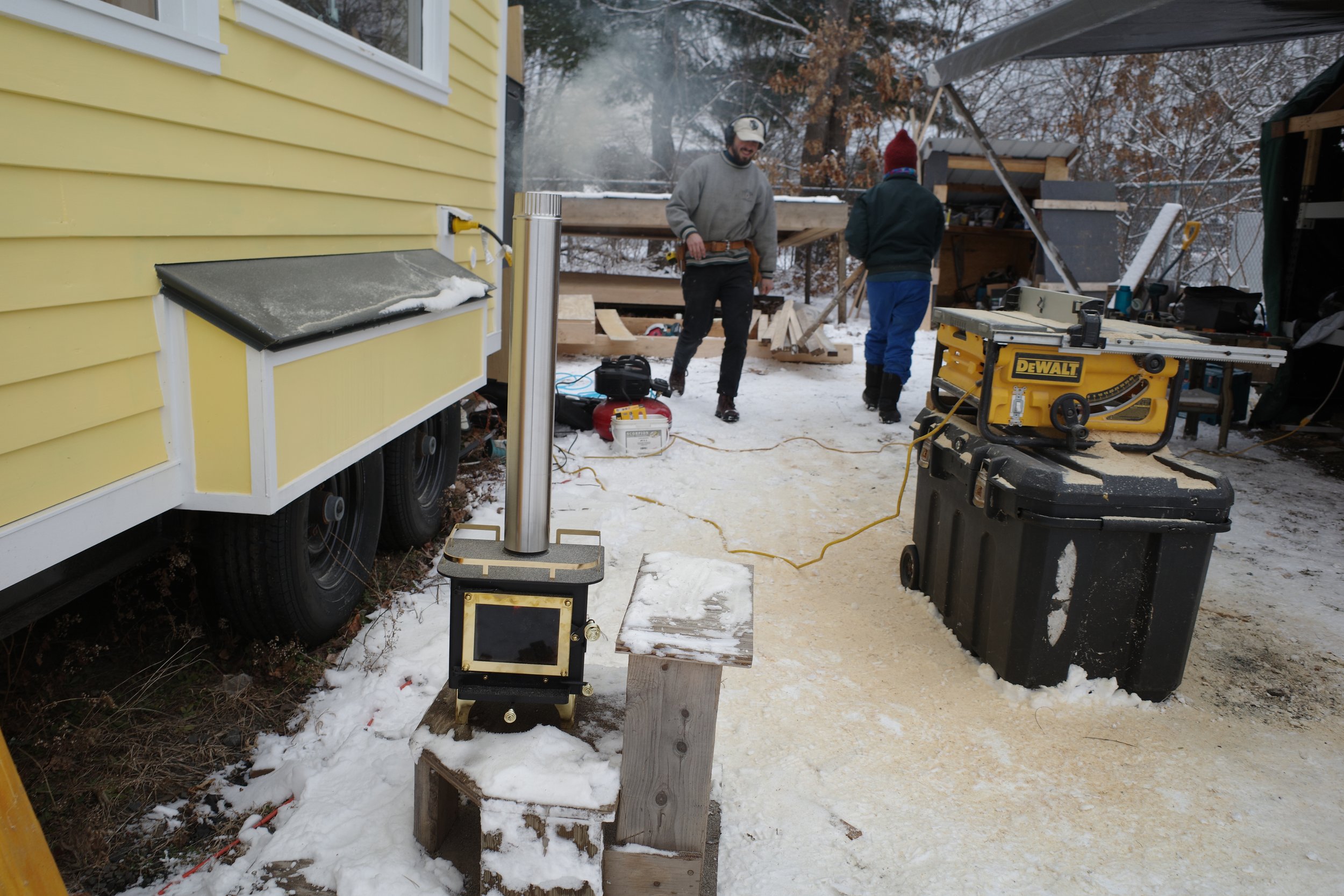
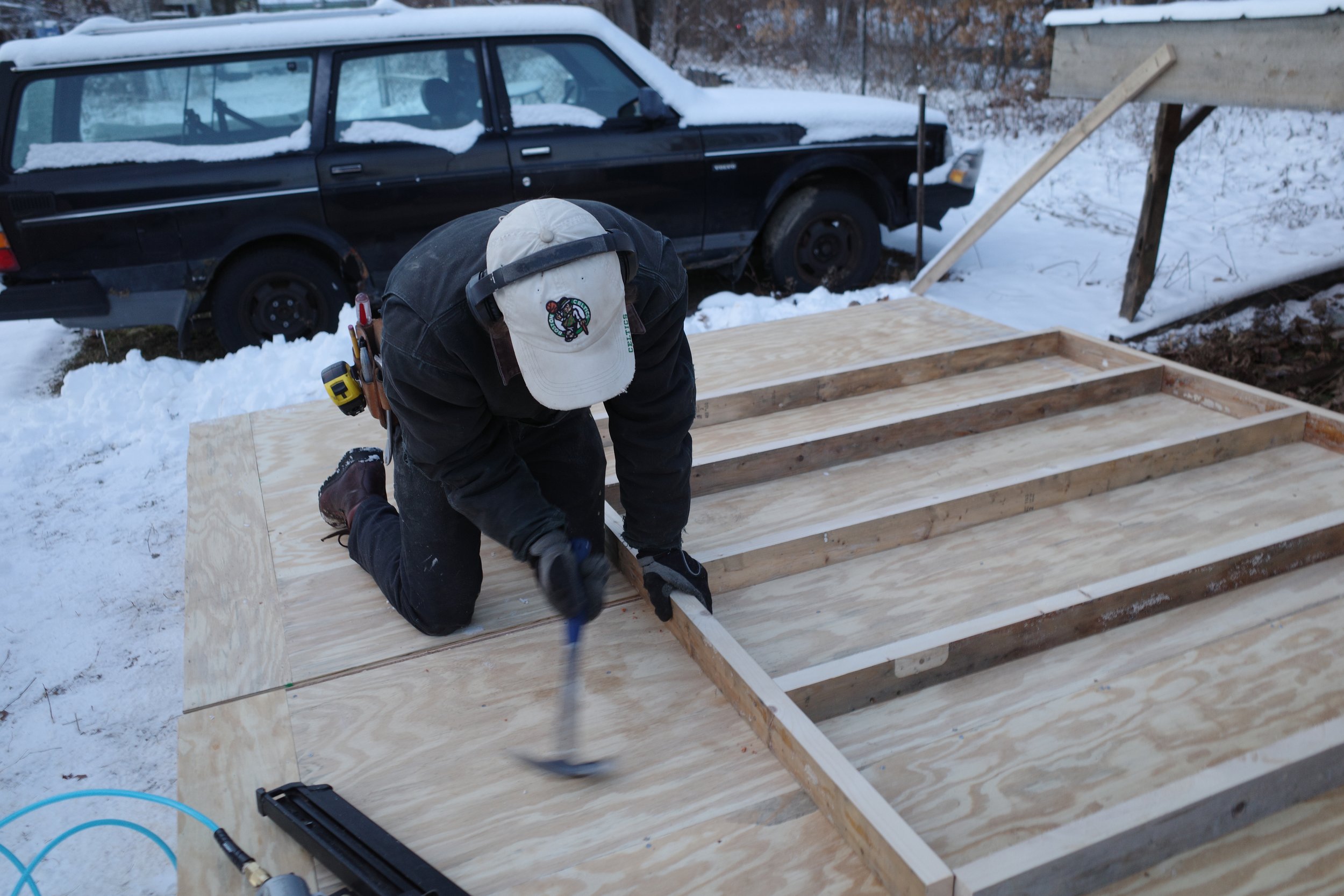
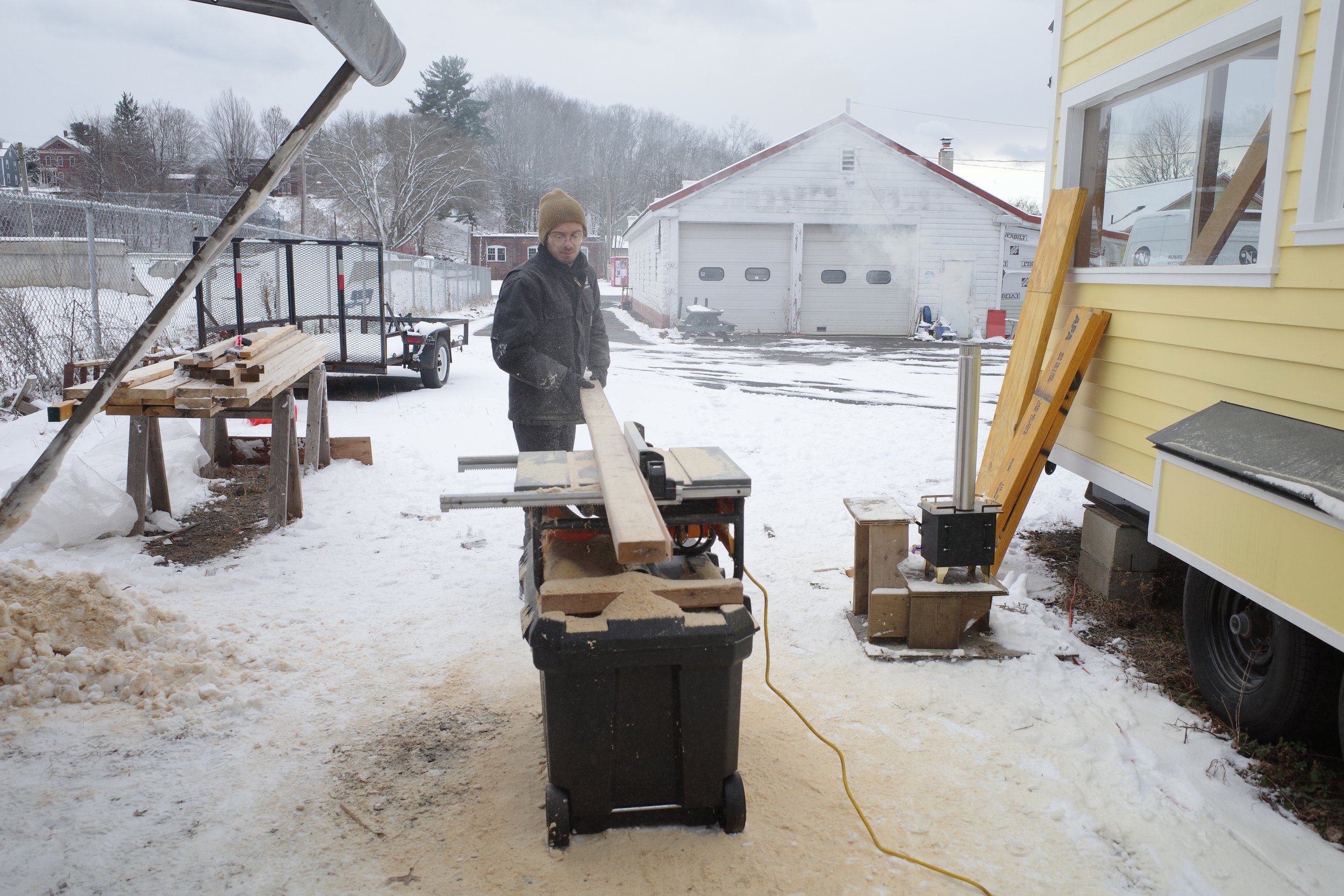
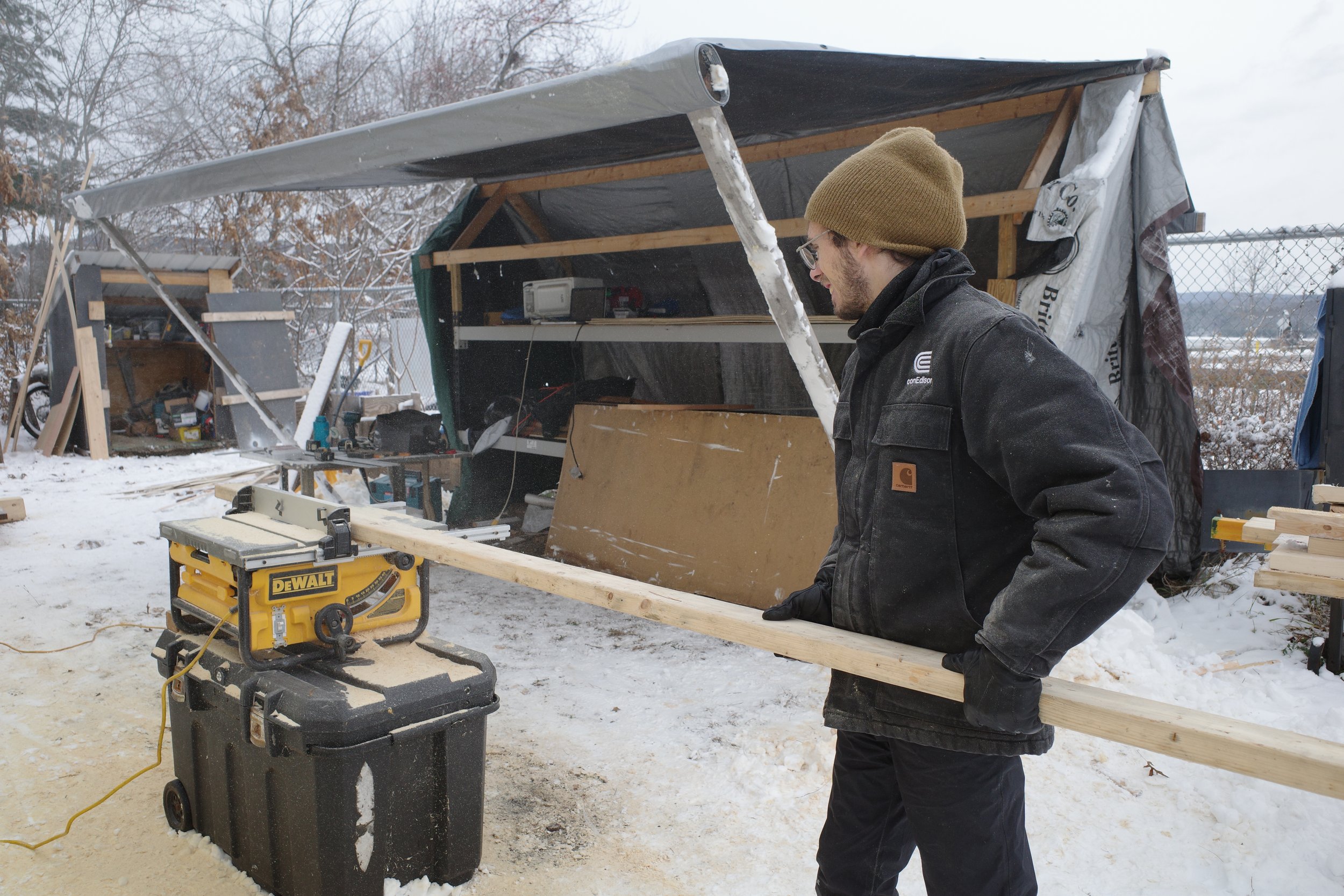
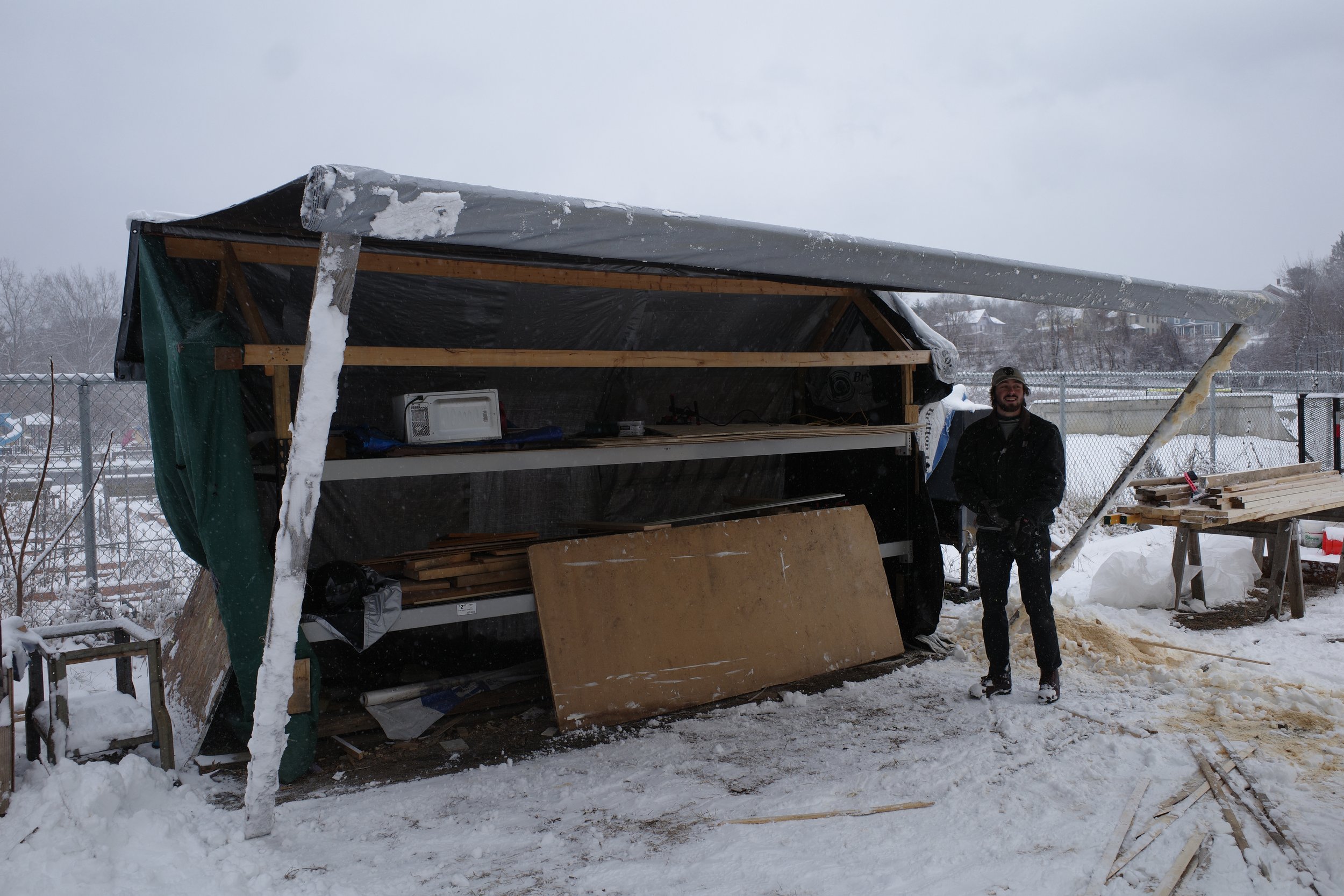
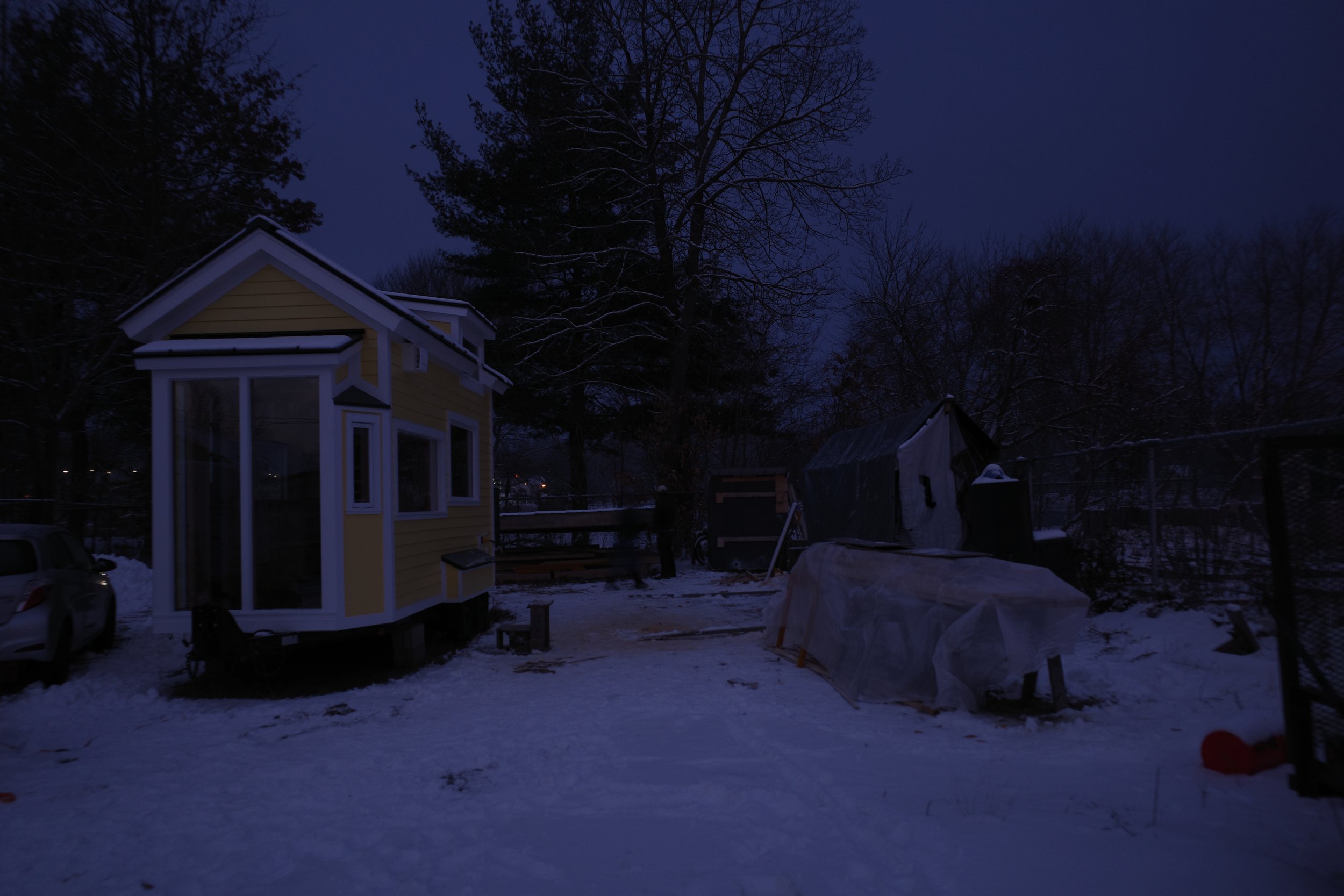
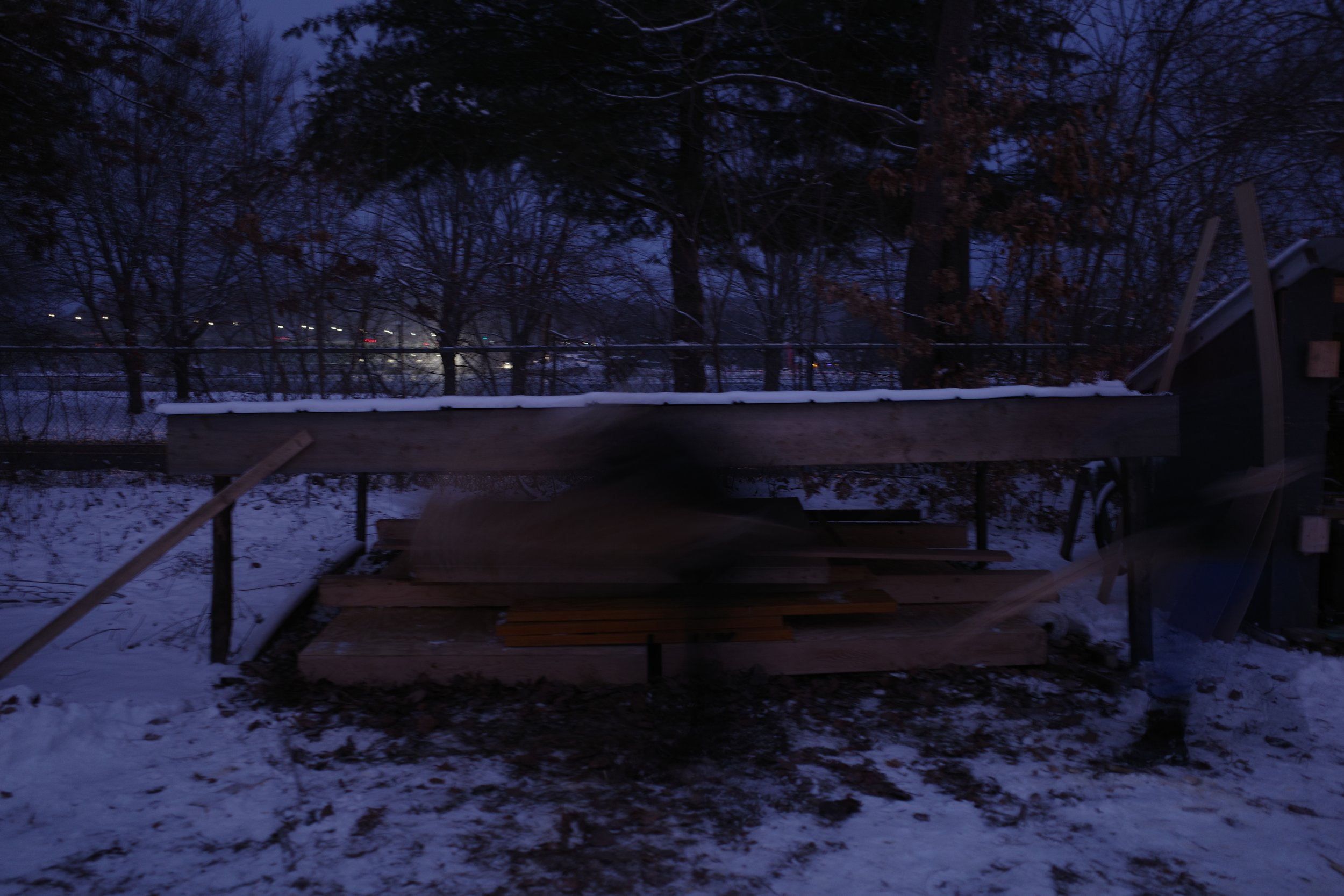
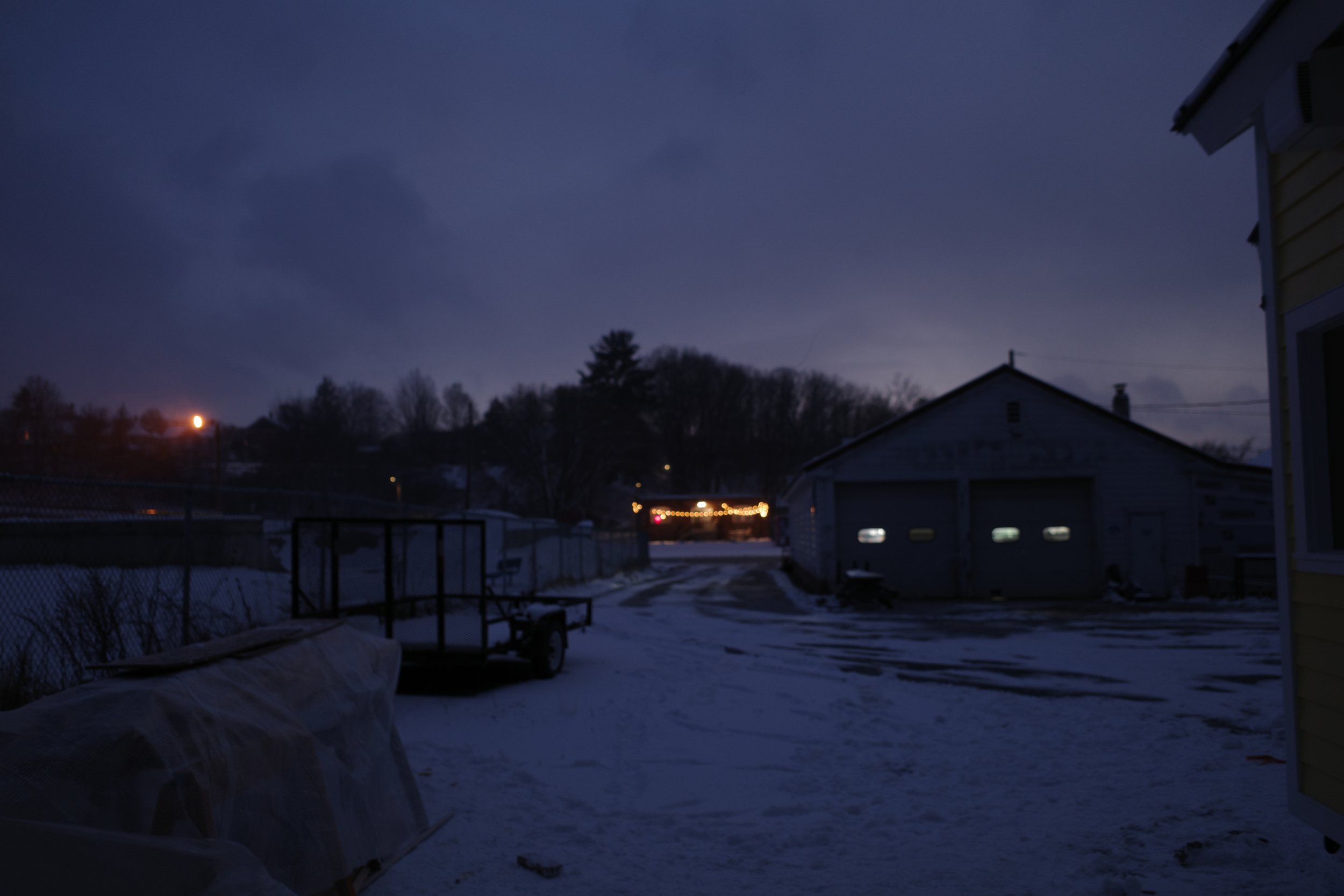
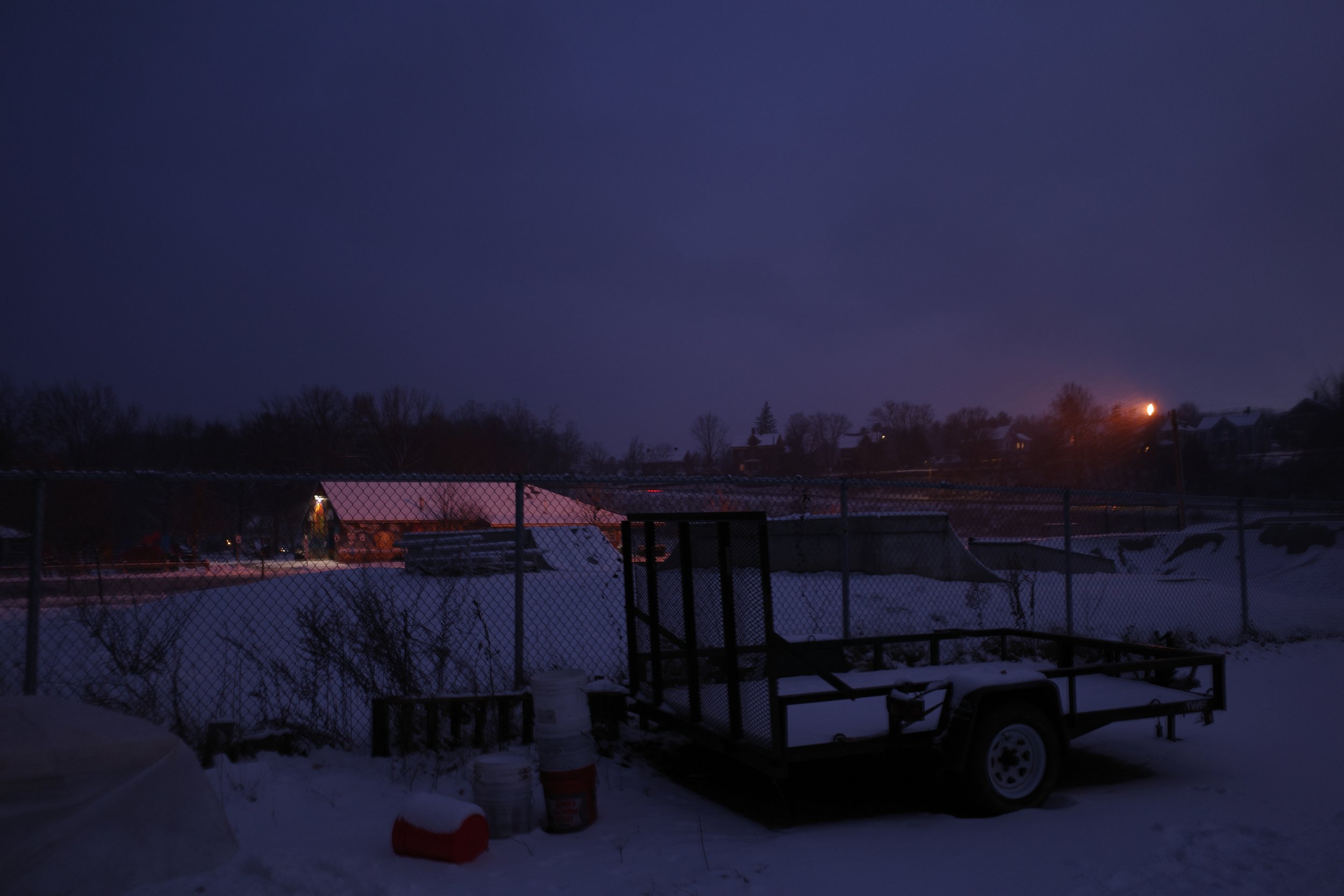
🌲 Guilford, VT? 🚱
“The town of Guilford does not have any zoning ordinances. That means that if you want to build something on your property you may do it without a permit. There may be state requirements for certain projects such as septic systems or for pieces of land that may come under the jurisdiction of Act 250 statutes as well as state and federal flood plain laws but, for the most part, people can do what they want on their own land. There is a town plan but that is more wishful thinking than enforceable planning.”
I started looking into whether it would be easier to start in VT, as opposed to MA, due to laxer zoning and building codes. From what I can gather, it does seem much simpler to build a number of small homes right over the border in Guilford, VT instead of in MA. They do not save any town wide building codes or zoning, as articulated by this article by Richard Davis in the Brattleboro Reformer:
I looked a bit into Act 250, the statewide environmental regulations, and found that I think it would only require a unit from us if we built more than 10 units within three miles.
I was also encouraged reading Guilford’s 2015-2020 Town Plan, in that they wanted to encourage the type of cluster zoning we envision:
It is the policy of the town of Guilford to: […]
5. Utilize smart growth principles to encourage small cluster housing developments, surrounded by preserved and undeveloped land, as an alternative to widely distributed development
And in their vision they seemed to emphasize community democracy and encouraging young people to be involved:
Guilford is
● a town that encourages young people to have a voice,
● a town that facilitates active participation with community leadership;
Overall, the strategy of starting with raw land there, and initially just using it to gather over the weekend and camp could be promising. Ideally we would be closer to our existing communities in central western MA, but MA has much tighter zoning and building codes, so it seems like the only sort of co-housing communities that are being built here are much more costly, ala Stowe Farm or Pioneer Valley Cohousing. That type of development also required much more upfront planning and development.
If instead we want something more iterative and chaotic then doing that legally in MA seems like a challenge. Also, by starting with raw land and without the need to invest heavily in shared utilities, we could each invest our time and money there in a more piecemeal manner and have it be more open to other folks as well. Especially if we could find a way to support building a bunch of affordable tiny homes, then it becomes accessible to have your own place without needing to get a mortgage.
Summer Updates
We are looking at the old “Aquarius House” at 211 Greenfield Road, Colrain (Zillow).
The “Aquarius House”
Note: We have decided not to move forward with this property for now and are actively looking for other options.
We are looking at the old “Aquarius House” at 211 Greenfield Road, Colrain (Zillow). Half of it was built in 1850, and then moved down the hill in 1900. The other half was then added, and two brothers lived there, one in each half, with their families and their hired help.
Community Land Trust
We are talking to Valley Community Land Trust about purchasing it together, where they would buy the land (including 6 acres across the street) and we would buy the house. This would help steward the land into the future, even after we leave.
Housing Cooperative
All residents, and community members who are invested in the space, would all be member owners in the Valley Housing Cooperative, with one each member having an equal vote. Decisions are made by all member-owner residents, with each resident having an equal say. Residents are able to decide for themselves what their rents should be and how they are spent.
Finances
The coop would raise its initial funds, needed for a down payment, from community members as a loan. This helps provide affordability for the residents, by not requiring a large up front contribution from them.
Saul put together a comic to give an overview of how we could legally share ownership. This was before talking to VCLT, so does not include the land trust component. If VCLT did end up purchasing the land, then on sale we wouldn’t get any profits from the increase in land value, just the house.
Additionally, another group such as NASCO Properties or a non-profit could purchase the house, which would ideally lower the monthly cost in exchange for giving up the ability to profit of it's sale.
There are many other resources which talk about this combination of using limited equity housing cooperatives and community land trusts to provide long term affordable housing with community stewardship, see “Community Land Trusts And Limited Equity Cooperatives: A Marriage Of Affordable Homeownership Models?” by Meagan M. Ehlenz,
We have also put together a provisional budget, with estimated costs per room that include all expenses:





